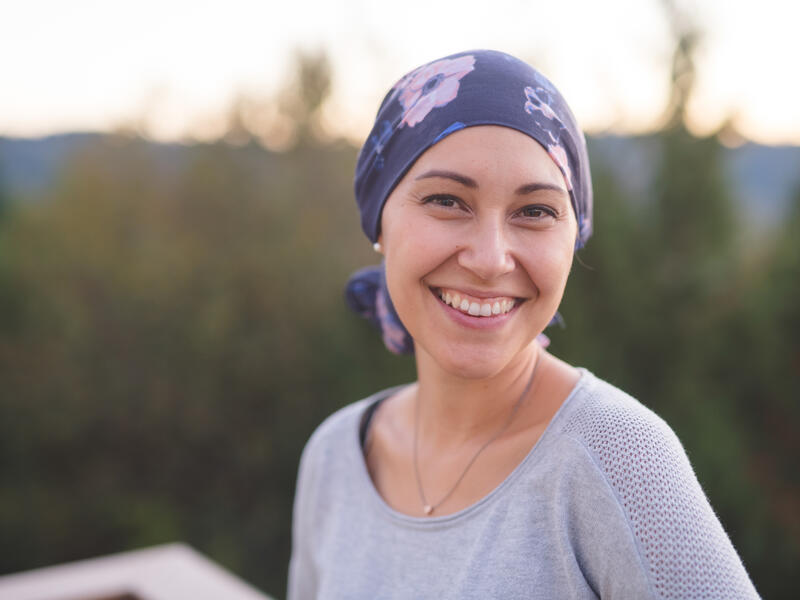It is your last chemotherapy infusion or radiation treatment. Your family and friends are celebrating with you, you ring the bell, and then you move on with your life.
If only it were that easy.
One of the hardest things I see people struggling with is “recovery time,” particularly as it relates to fatigue from cancer treatment.
Feeling tired all the time has often been considered an inevitable side effect of cancer and its treatment. Even though most physicians have historically thought of pain as their patients’ biggest concern, studies show that patients report fatigue affects their lives to a greater degree. Often, cancer survivors describe their fatigue as feeling “restless at night and then tired all day,” “constant sleepiness,” “mind-numbing, down-to-your-bones exhaustion.”
How long will recovery time take?
The rule I usually tell my patients is that it takes about two months of recovery time for every one month of treatment before energy will return to a baseline. Everyone is different but at least this gives you a ballpark. This is a lot longer than most people assume.
Rightfully so, people want to resume their “old life,” their “pre-cancer” life, and feel like they should get back to everything they were doing before cancer. What makes it more difficult is that people around you — your boss, co-workers, family and friends — may think this too.
These unrealistic expectations can be very stressful on you (which may even steal more of your energy).
Things to consider:
- Educate your family, friends, and co-workers. Even though you may appear to be “back to normal,” make sure they understand the impact fatigue is having on your daily life and what your limitations are. Tell them things like: “My oncologist expects that it will be at least six, nine, 12 months for my energy to really improve.”
- Set priorities. What are your priorities now? Maybe a perfectly clean house doesn’t matter much right now. Do the things that bring you joy and don’t worry about the non-essential.
- Modify your daily activities. Even though you may feel you have a ton of energy on certain days, avoid overdoing it and then suffering worse fatigue for the next two days.
- Be realistic. Let your family and friends help you when they offer, and continue to accept this help beyond treatment.
What causes cancer-related fatigue?
- Low blood counts
- Loss of muscle
- Chronic stress response
- Inflammation
- Disrupted sleep
- Hormonal changes
- Cancer therapies such as chemotherapy, radiation or surgery
The medications you take could also be contributing to your fatigue. Some make fatigue worse, including:
- Antidepressants
- Nausea medications
- Allergy medications
- Pain medications
- Beta blockers (often used for high blood pressure)
- Alcohol
- Other drug interactions
Other times, fatigue can be caused by nutritional, metabolic, or hormonal changes, such as:
- Hypothyroidism
- Menopause or low testosterone
- Adrenal insufficiency
- Poor diet
- Dehydration
- Metabolic problems
What can you do about it?
If fatigue affects your quality of life, talk with your doctor. There may be some simple, reversible things you can do.
I like to review medications first because there are often adjustments that can be made. Next, I look at nutrition and vitamin deficiencies as well as hypothyroidism, all of which can be common in cancer survivors. It is also important to assess your sleep to determine whether that is contributing to your fatigue. Sleep disorders are more prevalent in cancer survivors. In fact, it is estimated that 30% of cancer survivors who report fatigue actually have sleep apnea.
Some steps you can take:
- As difficult as it is, try to limit daytime sleep to a single half-hour nap.
- Avoid alcohol, chocolate, caffeine and nicotine late in the day. (Everyone’s cut-off time is different.) I have found that I can’t have caffeine after noon or I will have a restless night. Remember that caffeine is a long-acting “drug.”
- Turn off your television and other electronics one hour before bedtime.
- Write all your tasks and worries on a list before bed.
- Turn your clock away from your line of vision.
- Silence all your electronics.
- Create a bedtime routine like you would with a small child.
- If you can’t fall asleep or wake frequently during the night, try moving to another room and reading.
It might be helpful to meet with a sleep specialist if you have tried these steps and found no relief, or you can learn more with this sleep quiz.
The bottom line is that there are many reasons you may feel tired. It may be just the treatment, but oftentimes there are other contributors. The first step is to identify and treat any other fixable causes.
Learn more
- Cold capping: Improving confidence during cancer fight
- Can exercise help people with cancer?
- Cancer survivors find healing power in integrative health
…
Posted In Cancer, Cancer Treatments, Symptom Management
